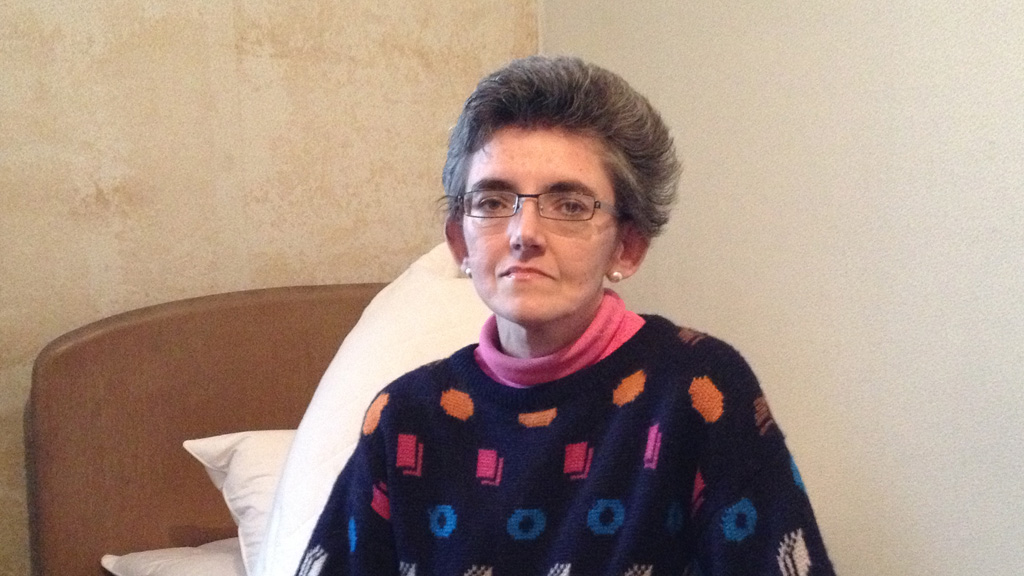Row over housing benefit changes dubbed ‘bedroom tax’
 Ciaran Jenkins
Data Correspondent and Presenter
Ciaran Jenkins
Data Correspondent and Presenter
Conservative MP Mark Field tells Channel 4 News he had not heard of the term “bedroom tax” before last week but that he voted for the policy behind the nickname because it will ease overcrowding.
Responding to a Channel 4 News survey of MPs’ views on the policy, Mark Field, who represents the Cities of London and Westminster, initially wrote: “Must confess that I have not heard of this new tax and it has not been raised with me by constituents (as yet).”
The changes are expected to affect around 660,000 social housing tenants from April. They face a reduction in their housing benefit, dubbed the “bedroom tax“, because they are deemed to be under-occupying their homes.
Under the reforms, couples and children of the same sex are expected to share a room, as are any two children under 10 regardless of gender. The policy has attracted criticism because it will apply to tenants with disabilities, foster carers, and many others who believe they have exceptional circumstances and yet fall short of the new criteria.
Mr Field, who voted in favour of the new measures in April, explained that it was the term “bedroom tax” that he was unfamiliar with, not the policy.
He explained: “You asked me about a ‘bedroom tax’, a term I had never before heard being used to describe the changes made to the housing benefit system last year, for which I voted. You may be aware that a ‘bed tax’ is a term more commonly used to describe proposals to add a charge to hotel bills.
“This is of particular relevance to my own London constituency since a plan was mooted in 2011 to introduce such a tax in the west end. I had not been aware that this idea had been revived, nor had I received any constituency correspondence on it, hence my reply to you.
“In the past day or so the Labour Party confected this new mutation of the term ‘bed tax’ in a bid to score political points against the government. The so-called ‘bedroom tax’ is not a tax at all. Instead the policy amounts to a reduction in the housing benefit a particular household receives in the event of under-occupation. I voted in favour of those changes for good reason.”
Read more: 'Bedroom tax' will ease overcrowding problem says MP
Read more: The 'bedroom tax' - the key questions

At Prime Minister’s Questions on 30 January, David Cameron was pressed on the issue by Alison Seabeck, the Labour MP for Plymouth, Moor View. She asked: “Is it right that a mother in my constituency may not, because of his government’s bedroom tax…be able to offer her son, serving in Her Majesty’s armed forces, a home or a bedroom on his return from duty?”
The prime minister said he would look at the case, but said the housing benefit reforms have a “very clear principle at their heart.”
“There are many people in private rented accommodation who don’t have housing benefit, who cannot afford extra bedrooms, and we have to get control of housing benefit,” he said.
“We are now spending as a country £23bn on housing benefit and we have to get that budget under control.”
Maria Brabiner (pictured above) has been told to expect an £11 per week reduction in her housing benefit. Since her mother passed away she is the sole occupant of a two-bed house in Salford. Her family have lived in the home since it was built in 1978.
"I'm scared of what's going to happen to me," she said. "I'm worried about whether my electric will be cut off, whether my gas will be cut off. It's not a case of won't pay, it's can't pay."
Maria, a former council worker who has been unemployed since 2010, says she is desperately seeking employment in order to make ends meet when her housing benefit is cut. "The sad thing is we're all categorised as shirkers," she said. "I've heard Mr Osborne talk about the unemployed, you know who they are, they've got the bedroom curtains drawn whilst you go out to work. I'm not like that. I'm up every morning at six o'clock. My neighbours will tell you, I go out searching for work."
The government said the under-occupation penalty will help contain expenditure on housing benefit, make better use of current social housing stock, encourage benefits claimants to find work and free up more social housing properties.
So far, of the 76 MPs who have responded to the Channel 4 News survey, not one has replied in support of the “tax”.
Liberal Democrat MP John Leech said he had voted against the changes, but accused the Labour party of coining the term bedroom tax in order “to scare people about the consequences of changes to housing benefit entitlements.”
Paul Murphy, the Labour MP for Torfaen, said the new penalty would have “incredibly worrying” consequences for some of his constituents.
“I really do not think that David Cameron, George Osborne and Nick Clegg understand the impact of these changes,” he said.
“They may seem a small reduction of a few pounds a week, but when someone is already living on the breadline, a sudden reduction in income can have a big impact.”